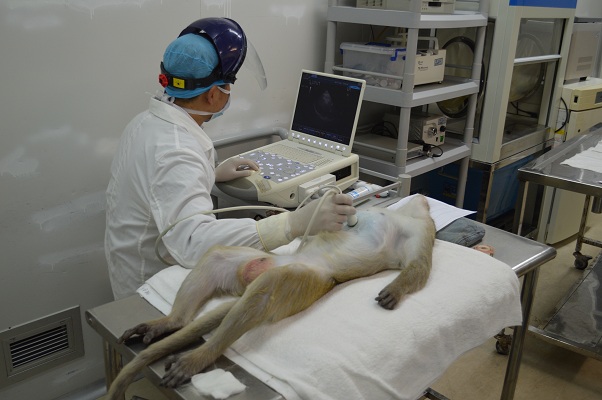On December 9th, European Heart Journal, one authoritative journal of its field, ran a long feature entitled The Institute of Model Animal of Wuhan University, China——A center of scientific innovation leading the quest to conquer cardio metabolic diseases. The article introduces the development and research achievements of The Institute of Model Animal of Wuhan University (IMA) over the past decade.
As the official journal of the European Society of Cardiology, European Heart Journal mainly focuses on the most advanced academic findings of fundamental research and clinic treatments on international cardiovascular diseases. The journal is among the top three English magazines in this field throughout the world, enjoying equal authority with the Journal of the American College of Cardiology and Circulation.
The feature introduces the IMA systematically from three aspects: academic research, technology platforms and the research team. It is a symbol that IMA of WHU enjoys wide global influence and high international recognition.
It pays special attention to the breakthrough of Prof. Li Hongliang’s team over the past ten years. Prof. Li’s research team mainly focuses on the casual relationship between innate immune signals and cardio metabolic diseases, and has obtained fruitful results through extensive experiments in genetically manipulated animal mode ls. Their research initially discovered that innate immune pathway is an intrinsic part of the stress response with great impact on cardio metabolic disease. However, the functions (protective or damaging) in these pathologies are not always consistent to their previously established roles in the innate immune response. More importantly, the debut of the concept of “innate immune signal reprogramming” in the international arena provided a whole new perspective to an already deep recognition of innate immune system and metabolic cardiovascular disease.
Their achievements are largely attributed to the support of clinical data. Based on a massive amount of clinical treatment data provided by the People’s Hospital of Wuhan University, the team members gradually put medical research into practice through careful observation and rigorous exploration. It is expected that efficient strategies and methods of treatment would be realized in the near future.
The remarkable accomplishments of the IMA have been noted by the scientific community through multiple international awards, and numerous publications in recent years in top-ranking journals, including Nature Medicine, Nature Communications, Circulation, Circulation Research, Hepatology, Journal of Hepatology, PNAS, Diabetes, Cell Death and Differentiations, and Hypertension. To date, more than 200 peer-reviewed papers have been published by Prof. Li’s team and more than 100 patents have been applied for or granted.
The IMA is subordinate to Animal Testing Laboratory of Wuhan University and the ABSL-III Laboratory, which means most of the staff work concurrently for the three institutes. Under the directorship of Prof. Li, the IMA is making bold efforts to fulfill its mission “to establish the first-class research platform, build the first-class team, and do the first-class research.” The IMA is mainly focused on research that facilitates clinical translation of scientific research. It also provides various kinds of experiment platforms, training and education domestically and internationally.
The IMA consists of more than 100 members at present, including professors, post-doctoral researchers, technicians and students. It is equipped with platforms of genetic engineering, model animal generation, molecule biology, pathology, cells and high-throughput sequencing; among which the most advanced is the systematically equipped animal genetic engineering platform with more than 1500 kinds of genetically engineered animals, such as mice, rats, rabbits, monkeys, etc. Additionally, the IMA could expand research to more than 100 monkeys simultaneously, which makes it one of the most distinctive platforms of research on primate animals. In the past ten years, the research team has provided animal related services to over 600 scientists in over 500 laboratories, which has served as a pillar of firm support with national and global influence to bioscience and medical science.

Reseracher at Institute of Model Animals

Animal Platfrom at Institute of Model Animals
Original source: http://eurheartj.oxfordjournals.org/content/37/43/3257
(Rewritten by Zhang Qiyue, Edited by Shen Yuxi, Edmund Wai Man Lai & Hu Sijia)


